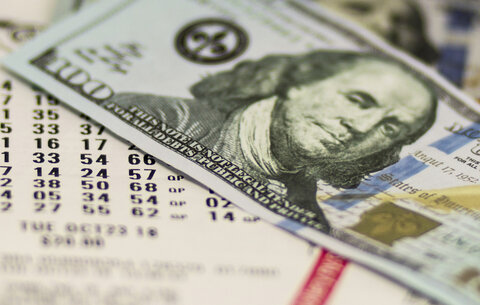
An Incredible Example of How Globalization Puts the World on Your Plate
When people hear the word “globalization” they probably think of giant container ships, wonky economic terms like “offshoring” and “trade deficit,” or geopolitical tensions and agreements. And, to be sure, Cato’s Defending Globalization project covers all of that stuff and more. Yet, as we explain in a new essay for the project, there may be no better symbol of real globalization—and its many benefits—than the restaurant down the street.
From the menu and the ingredients to the flatware and the staff, your local watering hole— even a good ol’ American Bar & Grill—is a tasty, real‐world lesson in how the free exchange of goods, services, people, and ideas can enrich our lives in numerous and unexpected ways. And, as we show in the essay, there’s no shortage of these food‐related lessons here and abroad.
One such example—an incredible one recently documented in Eater magazine—came across our desks shortly after we finished our piece, but it’s too good not to highlight here:
Every Friday at dinner time, a spry‐looking Uncle Sam—stovepipe hat, stars‐and‐stripes suit, surprisingly brown beard—dances his way around the 11 sprawling buffet stations of ABC Restaurant. He twirls past a steakhouse featuring mounted longhorns, wagon wheels, and wood‐paneled walls lined with U.S. license plates; a neon‐accented diner serving fast food; and a McDonald’s‑style playground. Children mob the costumed figure, squealing with delight. Parents laugh, whipping out phones to capture the moment. It’s all‐American, family‐friendly dining—in Iraq.
With a flagship 1,800-seat location in the city of Erbil and a second 800‐seat location in Sulaimani … ABC is one of Iraq’s most popular restaurant brands, with often busy dining rooms, large social media followings, and billboards all over. Families and friend groups across sectarian lines—Kurds, Arabs, Christians— flock to the restaurant. The offerings are immense, with over 600 dishes, including Turkish kofta, Iranian tahdig, and Italian American spaghetti. Guests pile their plates with steak, one of the most popular offerings, and Instagram their sushi, which ABC is largely credited with introducing to Kurdistan.
The article goes on to explain that ABC Restaurant Group started in the Netherlands, after its vacationing creator was inspired by a Florida Golden Corral. Featuring an “all‐you‐can‐eat concept and unabashedly American decor,” the restaurant’s original location became wildly popular and ended up attracting attention from a visiting Iraqi Christian in 2013.
Fast forward to 2017, and the restaurant finally opened in Erbil, the capital of northern Iraq’s Kurdistan region, and was an instant hit, attracting 2,000 customers on its first day. Today, ABC’s staff is as diverse as its cuisine—chefs come from Ukraine, Nepal, the Philippines, India, and beyond—and it has sparked a thirst among locals for more exposure to non‐Iraqi cuisines and cultures.
English pubs and wine bars are now common in Erbil, and sushi restaurants have proliferated. As one local business owner told Eater, “ABC was the first restaurant in Kurdistan that offered sushi. It was exotic, and something you could easily Instagram…. Now I wish the Asian food section had more dishes than just sushi. I love Asian culture, and I’d like to learn more about Asian food.”
Indeed, in a region marked by historical complexities and divisions, the ABC restaurant has emerged as a unifying space where people from different backgrounds—many of whom are part of a diverse influx of professional workers that’s turned Erbil into a regional business hub—can share an “American” meal with little regard for geopolitics or other possible tensions:
In ABC’s fantasy—in which Uncle Sam oversees culinary offerings from China, Mexico, and Japan—America stands in for a modern, globalized community. This isn’t a novel concept; businesses in emerging markets often emulate the U.S. in order to appear internationally integrated, equating Americanization with globalization. But the way this emulation plays out at ABC is entirely unique, capitalizing on northern Iraq’s distinct sociopolitical climate, Erbil’s thirst for international visibility, and the endurance of American soft power. Ultimately, ABC is a testament to how people around the world interpret currents like globalization and Americanization according to their own surroundings and desires, transforming the global into the local and personal….
Ultimately, just as visitors to Disneyland usually aren’t mulling the complexities of capitalism while riding Space Mountain, most customers aren’t actively thinking about American cultural imperialism when they dine at ABC Restaurant. Patrons flock to ABC for basic, human reasons. They want to bond with family and friends in a safe, welcoming environment. They want to explore. They want to enjoy life and feel like dignified members of a community both global and local.
As explained in Lincicome’s essay and video introducing the Defending Globalization project, we often forget the fundamental humanity of trade and migration that just so happens to cross political borders. Too many container ships and trade balances, and not nearly enough sushi and avocados. ABC’s story provides an incredible and entertaining reminder of this humanity—and the broader benefits of globalization here and abroad.
You can read our full essay on globalization and food here.



